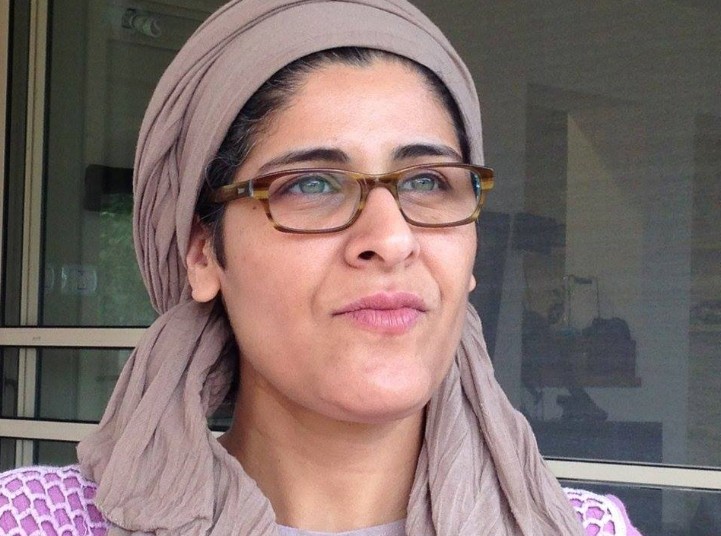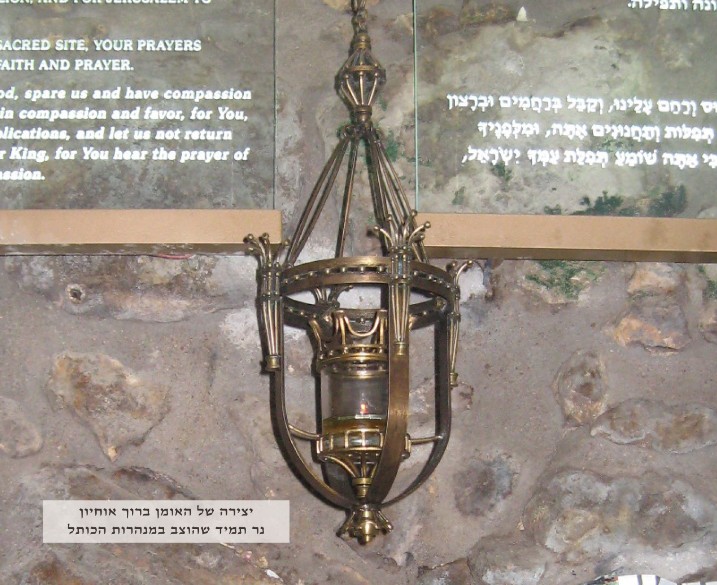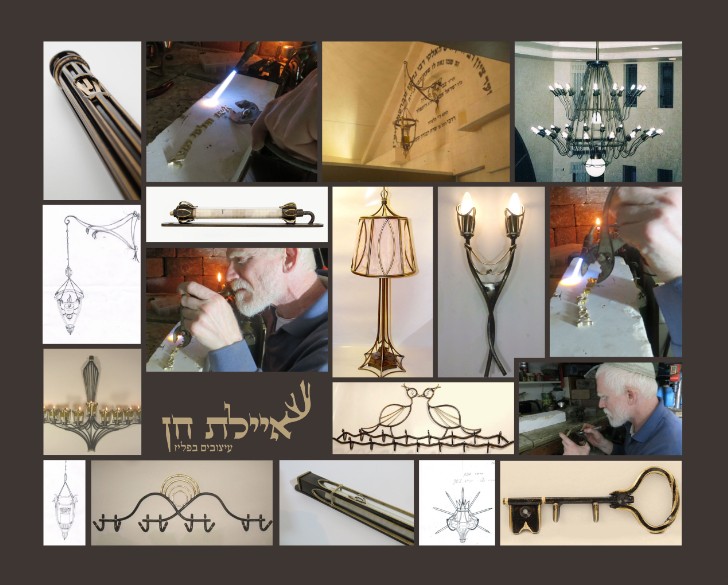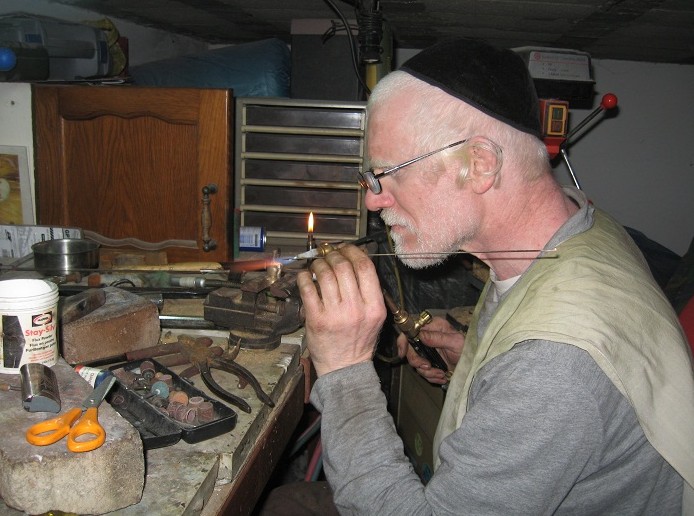Ayelet Ohayon on the 'Tzofia' Initiative: "No Need to 'Starve' Children of Any Sector for Judaism Anymore"
Ayelet Ohayon, who grew up distanced from Jewish commandments, discovered her connection with Judaism and aims to offer pure television content through the 'Tzofia' project. This initiative allows her to fulfill a long-held dream of bridging media needs with Jewish content.

If you ask her, Ayelet Ohayon (46) will tell you she never intended to become an editor and content manager for the 'Tzofia' project under the Hidabroot organization. Growing up in a strictly leftist household with minimal tradition, as a granddaughter of an Etzel fighter and daughter of a soccer star from Petah Tikva who became a key figure in Israel’s El Al airline, she had completely different dreams.
"I've been in a deep process of self-discovery all my life," she describes. "As a child, I mistakenly thought religion was primitive and only belonged in the past. When I grew up, I studied reflexology seeking healing for the soul. I later sought cultural richness through art studies at Beit Berl College, a place antithetical to Judaism. However, after just one year teaching in schools, I concluded that teachers were just 'babysitting', swapping methods and approaches out of helplessness with students. Over time, I saw entire systems of beliefs I grew up with crumble before me, setting the stage for what followed."
"One evening, I got a call from a friend", she recounts, "She, along with her husband, were actors studying at Yoram Levinstein Studio in Tel Aviv but then moved to Jerusalem. I was surprised by their decision. She explained their desire to make a film about Gog and Magog, and in verifying facts related to it, they met a certain rabbi. Through this exploration and conversations, underwent an inner process leading to spiritual strengthening. She described their beautiful new family life, the holidays and simplicity. I impulsively declared I wanted that too, and the very next day, without even meeting a rabbi, I went to buy my first skirt. I then entered a seminary, met my husband through a match, and the rest is history."
 Ayelet Ohayon
Ayelet OhayonWhere did you get your initial familiarity with Judaism at that stage to know that you 'wanted in' as well?
"In the period preceding that, while I was an art student, I spent Shabbat with my righteous grandmother, may she rest in peace, who lived in a Shabbat-observant neighborhood. I couldn't ignore the peace every Shabbat there. At some point, I realized it was what I'd been seeking but couldn’t find, certainly not in the noisy Tel Aviv where I lived then. I recall waking early on Shabbat mornings with her, saying Tehillim. I thought I was doing her a favor, unaware of the spiritual infusion I was receiving. We'd sit on the balcony listening to the morning prayers' sounds, observing this reality and deep serenity. I realized there was something here I hadn’t found elsewhere, so when my friend called, I understood it had been brewing inside me for a long time and it was time to act."
At this point, Ohayon felt disillusioned by the distorted content she absorbed at the art seminary, struggling to finish her final seminar project just to graduate and obtain a degree she worked so hard for. "It's hard to explain this feeling when, at the age of 30, you first discover you have a Father in heaven. It’s a profound feeling of great love, identity, and belonging, alongside pain for friends and family who were not blessed with this. The Torah teachings I heard at the seminary were like dew of revival for an exhausted soul. I felt connected to my true roots."
As mentioned, she met her husband through a match, and like every course of her life, their wedding wasn't typical. "At our wedding, held at Vagshal Hall in Bnei Brak, we had guests from across the Israeli spectrum. My father is a man of kindness who always helped people in every role he took on. Among the guests was the famous soccer coach Avraham Grant, whom my father, as a children's team coach, had given a start as his assistant paving his career. Also present were Avigdor Kahalani, then Knesset member and now chair of the Friends of the IDF, the renowned artist Aviho Medina, and Rabbi Firer, who honored us with one of the seven wedding blessings. In my father's role as the El Al security manager, he allowed inserting the ambulances all the way to the airplane for Rabbi Firer’s organization, a favor Rabbi Firer deeply appreciated."
 Baruch and Ayelet
Baruch and AyeletFrom Israeli Wrestling Champion to Yeshiva Student
Surprisingly, her husband, Baruch Ohayon, also has a fascinating life story leading him to Judaism's embrace. "Until age 27, my husband was a Greco-Roman wrestler, holding the Israeli champion title for 13 years in both youth and adult categories," says Ayelet. "But when steroids entered the sports world, he chose to retire. In his search for employment, he reached a notable lighting factory in Tel Aviv, where his talent was quickly recognized, and he became the house designer."
Unlike Ayelet, Baruch grew up in a traditional home. Yet, the sports lifestyle significantly influenced him, drawing him away from Jewish values. "One Friday night, almost unbelievably, without planning, he bought candles, challah, and wine for Kiddush at a Florentin neighborhood convenience store instead of beer and snacks," she describes. "Since then, he started observing Shabbat, and at some point, decided to leave his job and attend a yeshiva in Jerusalem. There, over 12 years, he became a yeshiva student dedicating all his time to Torah study."
Later, Baruch was selected as one of the few yeshiva students to study under Rabbi Moshe Shapiro. However, when they moved to the Ramat A' neighborhood post-marriage, others noticed his gift and asked him to craft a menorah for their newly established synagogue, 'Shaarei Da'at.' "Baruch dedicated all his 'between times' to this project," describes Ayelet. "The factory owners where he'd worked before handed him the keys out of love, urging me to let him return because 'such talent shouldn't be wasted.' I replied, precisely that's the point, such talent in Torah study mustn't be wasted." Baruch created a stunning, handcrafted giant menorah, two and a half meters in diameter, earning immense appreciation from the community as an artist.
 Western Wall Tunnels
Western Wall Tunnels

"Tzofia Initiative? A Barrier Against Misfortune"
Today, the couple lives in Petah Tikva near their parents ("at some point, the longing became unbearable"), where they raise their children. "I remember how each time I passed the Hidabroot offices in Petah Tikva, my heart ached. I would say to Hashem: 'A Haredi TV channel engaged in outreach? I wish to work there so much!' I deeply desired to engage in outreach, giving what I had received, continuing to spread Judaism’s light for those yet to experience it. Eventually, my prayers were answered, and two years after submitting my resume and waiting patiently, I was invited for an interview and joined the 'Tzofia' project. I've been here ever since," she laughs.
"Even before my religious discovery, a friend told me about Rabbi Zamir Cohen Shelit"a and how he presents Judaism from a perspective of science and progress. It impressed me deeply as it differed from the Judaism I knew at that point, which was scarce and disconnected from reality."
Today, she serves as content manager and editor for the 'Tzofia' project, which she wholeheartedly believes in. "Rabbi Zamir Cohen's Shelit"a goal is to provide a different alternative for those strengthening spiritually and tired of the shallow content typical on mainstream channels but still unable to disconnect from media. This allows them to enjoy Hidabroot's channel and other quality content."
"I always envisioned the parable about building a hospital under the rickety bridge in Chelm," she describes. "Rabbi Zamir Shelit"a builds a bridge to lead those in need to a clean world of technology. I call it a 'barrier against misfortune.' An allowable barrier approved by Rabbi Zamir Cohen Shelit"a and all Israeli sages signed off on it."
What can viewers expect from the Tzofia project?
"Besides the known Hidabroot channel 97, it includes a live channel broadcasting exclusive 'Tzofia' productions. There'll be numerous other channels, including a women's channel accessible only to women with a password, an invested and fascinating children's channel, a Beit Midrash channel offering Talmud study allowing fixing set times for Torah study in front of the screen, a family channel featuring workshops on family peace and child education, and also a music channel with hundreds of original videos shot for Hidabroot by leading artists, allowing personal playlist creation at home. There's also the capability to watch thousands of content, lectures, programs, and lessons via VOD for those who miss them.

"Additionally, there'll be internationally-level nature films and films by Haredi creators. In the future, we anticipate an interactive screen with information on the Jewish world at large. It'll be very rich, developing, and include programs made especially for the Tzofia project not published on the website. Personally, I see it as the 'new Jewish content cabinet,' which we can finally present even to Jews abroad who can't receive the Hidabroot channel but profoundly need its content."
What feedback have you received about the project so far?
"Although the project is only marketed in recent days, the feedback is already amazing," Ayelet describes. "I receive genuinely excited calls from mothers saying: 'I want to cry for how my children need this. Finally, I can allow them to watch clean and reviewed content.' That's really the project's focus," she adds. "To ensure we're no longer 'starving' children of Jewish knowledge and providing it through the technological means they're accustomed to, as the soul needs its fulfillment."
"I'm sure there was dreadful frustration in children wanting to view different contents with parents unable to permit it. Personally, I don't believe in frustration. I believe we should strive to serve Hashem with joy, ease, and happiness, and Tzofia significantly assists in this regard. For the first time, a method exists to convey important, valuable messages to children in a completely safe way. Hidabroot has incredibly intriguing children's programs with Jewish messages, which Jewish children can enjoy without fear."
It seems for Ayelet, the Tzofia initiative represents a significant closure. "I studied in the most secular environments possible with thousands of Jewish children without exposure to a single true word about Judaism. This was a kind of spiritual holocaust, raising a generation with no connection to its roots. Thus today, bringing something like this home is touching. So far, the response has been remarkably positive, thank Hashem, and I have no doubt it will continue expanding. After all, this is truly ground-breaking news."

